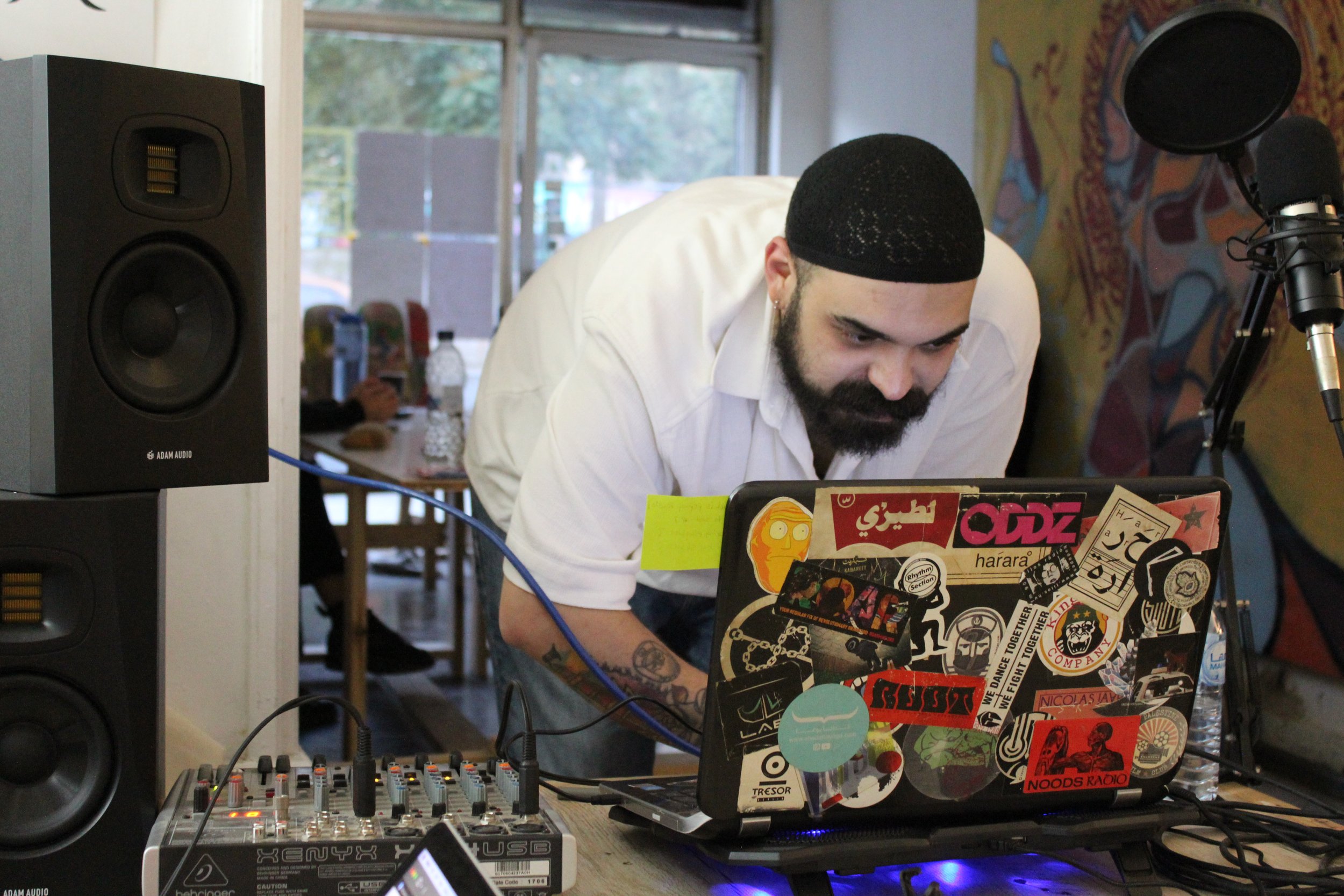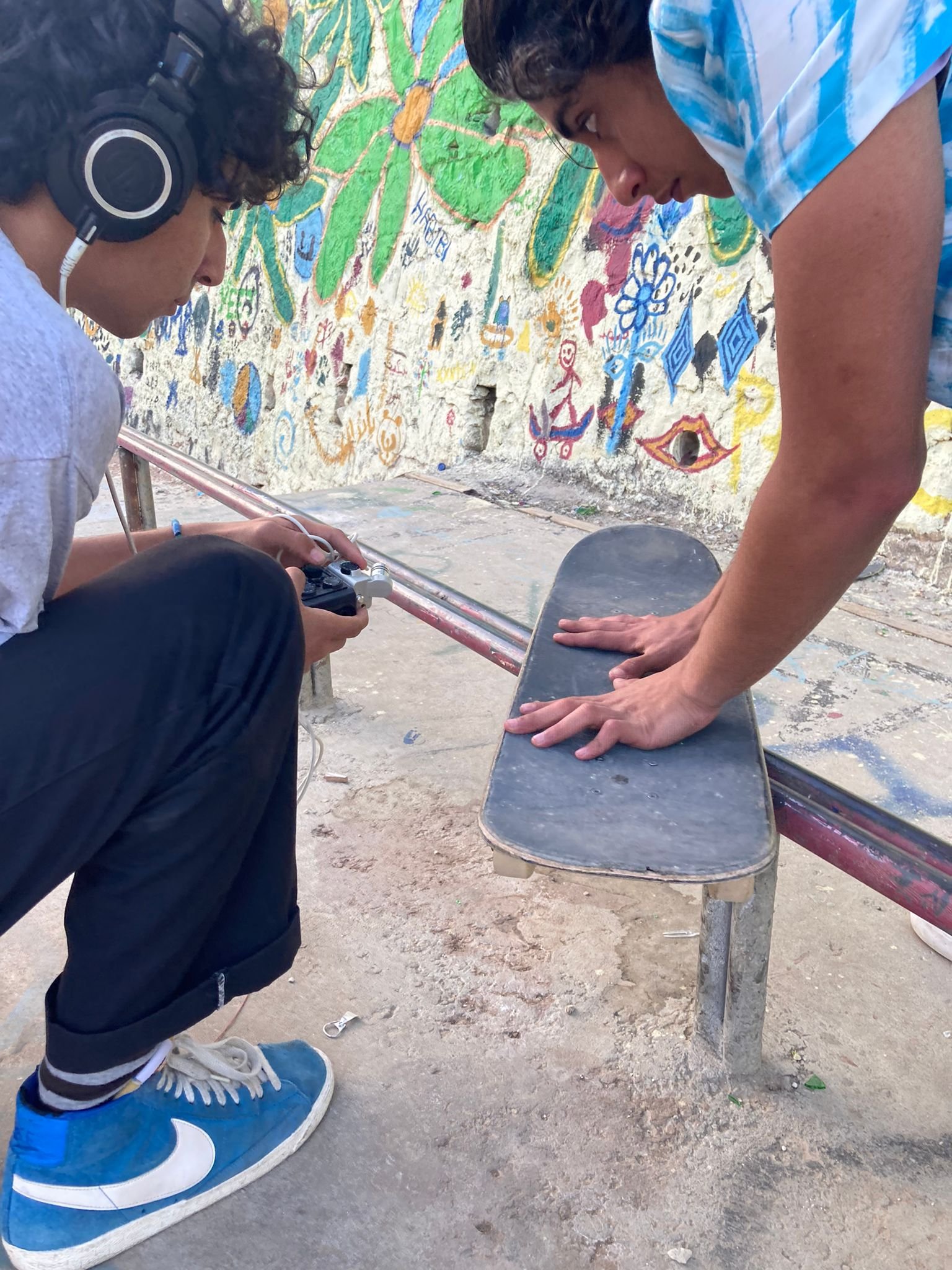Aswat al Raseef
Aswat al Raseef [Sounds of the Sidewalk] is an online radio station hosted at 7Hills Skatepark’s Urban Education Centre in downtown Amman, Jordan. The project was a collaboration between 7Hills, Refuge Worldwide and Zaatari Radio. The project developed from a month of radio workshops with young people in Amman. Each participant worked on producing their own radio show which was then broadcast at a pop-up radio event in Amman and on Refuge Worldwide in Berlin. The workshops were hosted by organisations and individuals pushing contemporary and underground Arabic culture within The Levant, wider SWANA and within the diaspora. This included Nour Alsholi, Big Zaid, Odai Masri and Ma3azef. After the month of workshops, the radio studio is hosted at 7Hills’ new Media Lab.
Alongside workshops in Al Raseef, the project also hosted screenings, talks and events open to members of the public. These included a film viewing and discussion of All the Streets are Silent: The Convergence of Hip-Hop and Skateboarding, a panel discussion entitled ‘Public Space, Art and Youth Culture in Jordan,’ and a pop-up radio broadcasting event. The panel discussion involved Mohammed Zakaria (7Hills and Philadelphia Skateboards), Safi al Sakran (Medearts Network and Garage Art Space), Majed Abu Dayyeh (Panda Zilla and Al Raseef) and Jude Swearky (7Hills and Ma3azef) exploring organising, financing, collaborating, sustaining and developing artistic practices within Jordan that create spaces and opportunities for young people.
In both the workshops and public events, there were reoccurring themes of providing inclusive spaces for young people in Jordan as well as platforming SWANA artists in a healthy regional scene. With Amman in particular, policymakers fail to recognise the metropole as a place of refuge within regional crisis, rather opting to provide spaces that cater for a wealthy elite instead. This has created the East-West Divide in which young people increasingly carry the weight of a polarised city offering little in terms of public and artistic spaces. Interestingly, this lack of infrastructure was often discussed in terms of blurring public-private spheres whereby grassroots organisations run private yet open, and importantly, safe and inclusive spaces, that serve the needs of a young and diverse population. It was also interesting to hear how radio contributes to these debates; taking to the airways to occupy both public and private spaces offering young people a medium to broadcast their ideas to whomever may listen.






